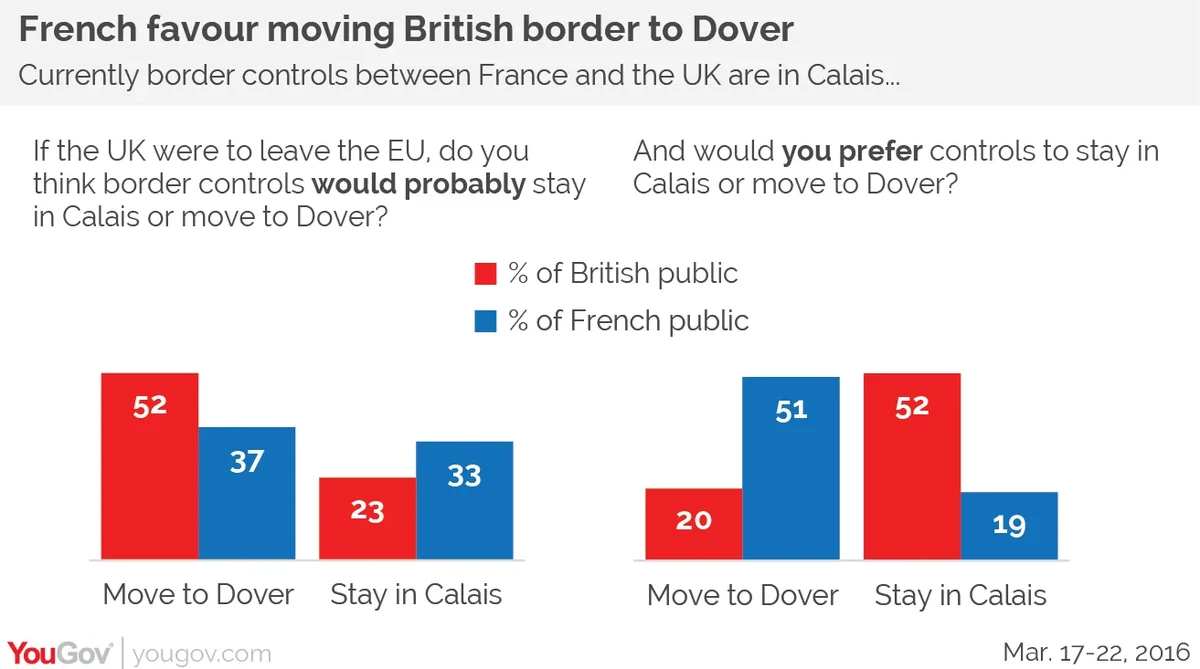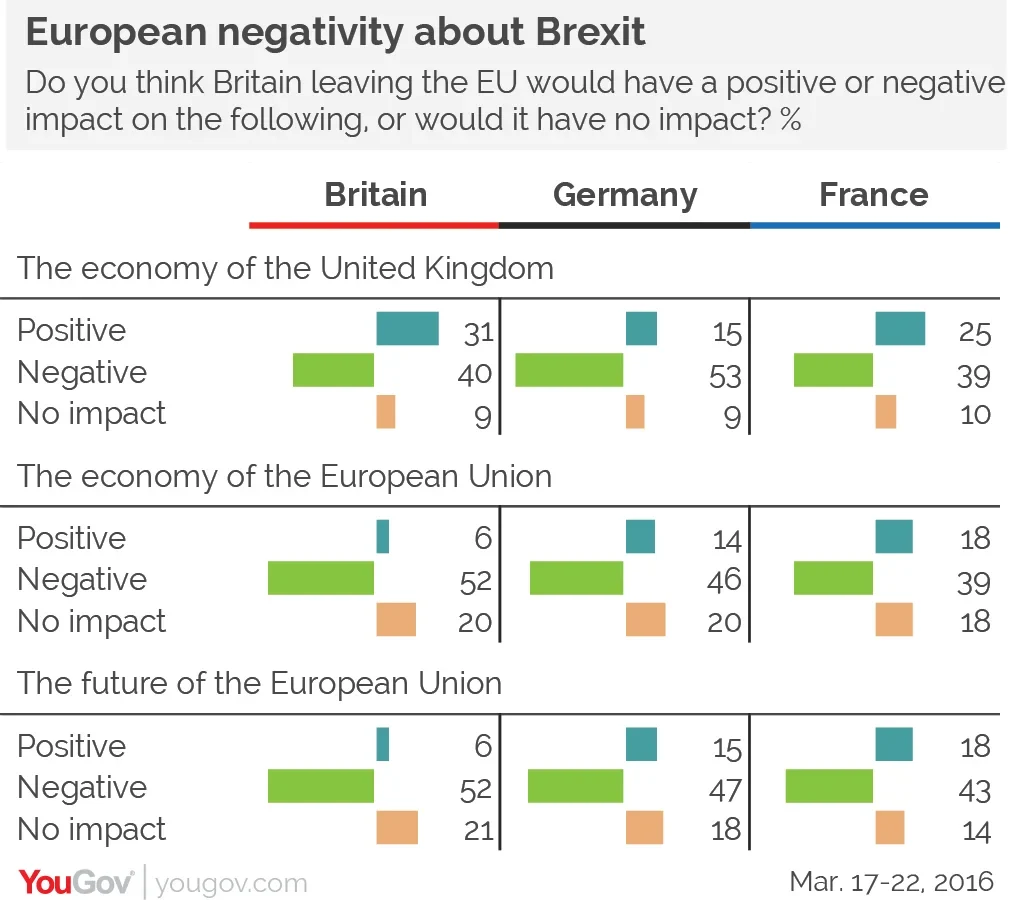Most French people would prefer the British border to be in Dover – and most British expect this to happen if we leave the EU
Concerns over immigration are one of the most powerful reasons to support Britain leaving the EU, but the Remain campaign has found an argument which threatens to turn these instincts against Brexit. Back in February David Cameron was rebuked for claiming leaving the EU would give French politicians the chance to "tear up" the agreement which effectively places part of Britain's border with France in Calais. In March, however, France's economy minister said the agreement would be threatened if Britain left the EU – and soon after French President Francois Hollande said it would have an impact "on the way we handle the situation in terms of immigration".
New YouGov research reveals the majority of French people (51%) would prefer their border to be in Dover while only 19% say they would like it to stay in Calais. Most British people (52%) also predict the border controls would be moved to Kent in the event of a British exit from the EU.

French people are only slightly more likely to predict controls at Calais would move to Dover after Brexit (37% expect they would, 33% predict they would not), although many are unsure (30%).
Most Germans are unsure where the border should be, however almost twice as many (31%) would prefer it to be in the UK than in France (17%).
French people are also significantly more likely to say Brexit would have a negative impact on their relationship with Britain (47%) than a positive (11%) or negligible effect (19%). And the same goes for Germans (50% negative, 9% positive, 21% negligible).
German and French people are also more likely to predict negative effects of Brexit for the economies of the UK and EU, as well as the future of the EU in general, than to predict positive or negligible effects.

British people, in contrast, are as likely to say the impact of Brexit on the UK economy would be positive or negligible as they are to say it would be negative, but they are less likely to foresee neutral or positive effects about the impact of Brexit on the EU.
The Le Touquet treaty between the UK and France, which allows Britain to conduct border controls in France – and prevents a situation where people concealed in vehicles at a Dover border would automatically be able to claim asylum in Britain – was agreed in 2003 and reduced asylum claims from 80,000 a year to 30,000. At the time France was thought to have seen the agreement as a disincentive to prospective migrants wanting to come through France to get to Britain, however this has not been the case.
PA image











